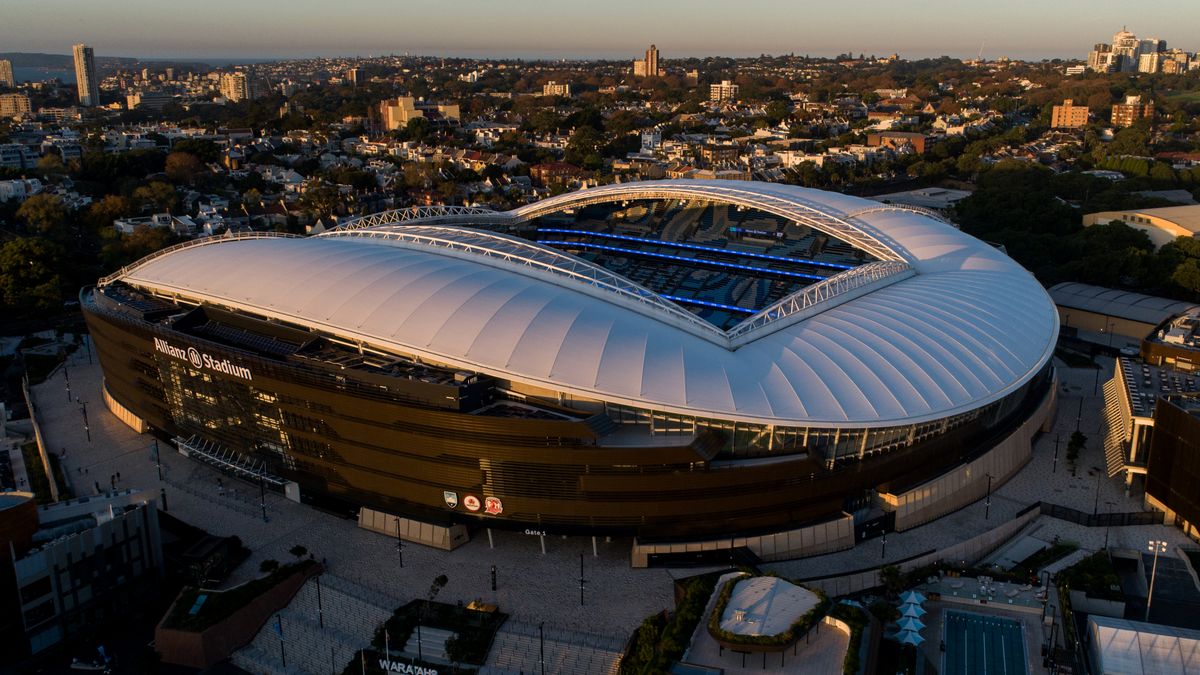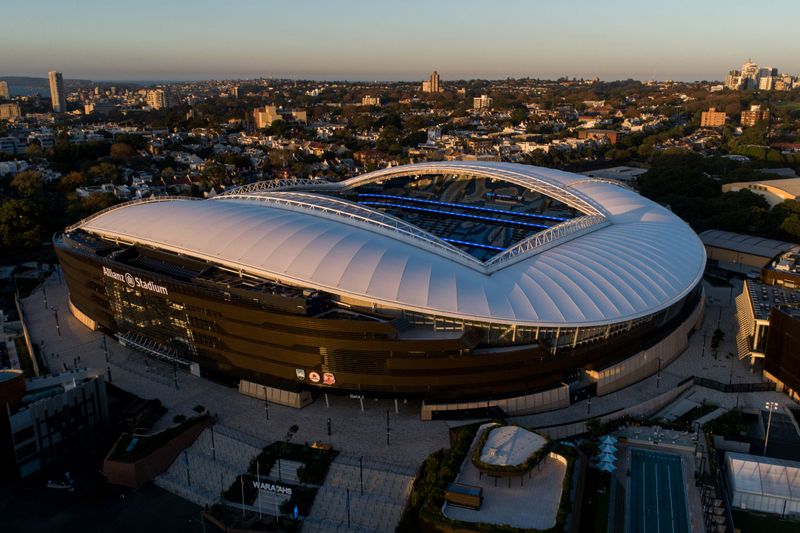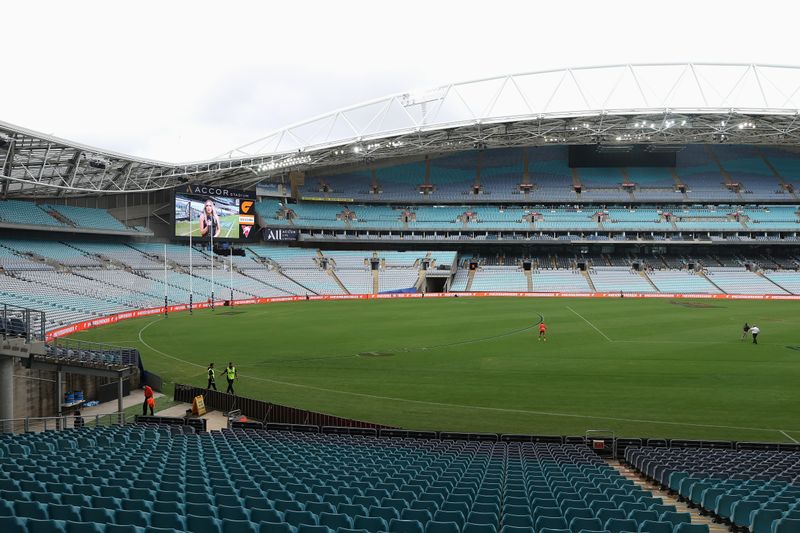Sydney Football Stadium
The Women's World Cup will be held in Australia and New Zealand from July 20 to August 20. The 64 matches will be held in ten stadiums, six of which are in Australia. The remaining four are held in New Zealand, including the southernmost stadiums of all World Cup venues. With both cricket and rugby ahead of football in popularity, the ten grounds couldn't be more different.
© 2023 Getty Images/Cameron Spencer
Australia Stadium
With a capacity of 81,500 during the tournament, Stadium Australia (also known as Accor Stadium) is the largest of the ten Women's World Cup venues. Therefore, the final will also be held at this venue in Sydney. The semi-finals, quarter-finals and round of 16 will also be decided here. It was built in 1999 for the Olympic Games.
© 2022 AFL Photos / Cameron Spencer Photos / AFL
Sydney Football Stadium
Sydney Football Stadium is another arena in the capital of the Australian state of New South Wales. Six group matches and one round of 16 round will be played in the stadium, which will seat 42,250 spectators during the World Cup. The German national team will also play its group match against Colombia here.
© 2023 Getty Images/Hanna Lassen
Garden of Eden
At Eden Park in Auckland, New Zealand, about 40,000 spectators can watch the opening match of the Women's World Cup between New Zealand and Norway. The stadium, which was built in 1900, will host five more group stage matches, in addition to the round of 16 and the quarter-finals.
© 2021 Getty Images/Anthony Au Young
Melbourne Rectangular Stadium
110 years later, Melbourne Rectangular Stadium (also known as AAMI Park Melbourne) was built. The stadium's facade is built in a honeycomb shape, intended to be transparent but can also provide shade for spectators. 30,100 people can watch four group matches and two round of 16 matches here. The German national team will play its opening match in the World Cup here against Morocco.
© 2022 Getty Images/Daniel Puckett
Suncorp Stadium
Suncorp Stadium in Brisbane will accommodate 52,250 spectators during the tournament. Not only the third-place match will be held here, but also the quarter-finals, the round of 16, as well as five group stage matches. The German national team will meet South Korea here.
© 2023 Getty Images/Bradley Canaris
Perth Rectangular Stadium
The city of Perth is located in the far southwest of the Australian continent. This is where Perth Rectangular Stadium, also known as HBF Park, is located. The stadium can accommodate only 20,000 spectators during the tournament. Five group matches are held here.
© 2021 Getty Images/Paul Kane
Hindmarsh Stadium
Probably the smallest stadium in the tournament is located in Adelaide. Hindmarsh Stadium has a capacity of only 15,000 spectators during the World Cup. Four group matches and a round of 16 round will be played here.
© 2023 Getty Images/Paul Kane
Wellington Stadium
The only other oval stadium besides Australia Stadium is Wellington Stadium in the New Zealand capital of the same name. During the World Cup, up to 35,500 spectators can watch seven group stage matches plus the round of 16 and quarter-finals live.
© 2023 Getty Images/Hagen Hopkins
Dunedin Stadium
The southernmost World Cup stadium of all is located in Dunedin, New Zealand. Here is Dunedin Stadium, which seats 28,600 fans during the tournament. Because of its full roof, it is called a “greenhouse.” Five group matches will be held under the dome.
© 2022 Getty Images/Joe Allison
Waikato Hamilton Stadium
Waikato Stadium is located in Hamilton, New Zealand and has a capacity of 23,100 spectators during the tournament. Five group matches will be played here.
© 2023 Getty Images/Michael Bradley




